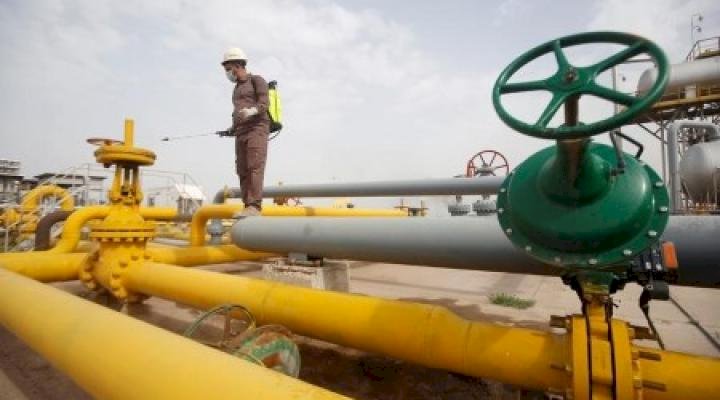Oil fall worse than expected rises in fuel stocks in the United States

Oil prices fell in early trade on May 28, 2020 after US crude, gasoline and heating oil inventories all rose more than expected, hoping for a smooth recovery in demand from lockdowns of coronavirus. The decline extended losses as of 27 May 2020 over uncertainty over Russia's commitment to deep oil production cuts in the run-up to a meeting of the Petroleum Exporting Countries Organization and its allies on 9 June, dubbed OPEC+.
Crude futures in the US West Texas Intermediate (WTI) dropped as much as 5 % to a low of $31.14, down 3 %, or 97 cents, to $31.84 at 0019 GMT. The oil futures of Brent last went down to $33.96 by 2.3 %, or 78 cents. Data from the American Petroleum Institute industry group showed that crude stocks rose by 8.7 million barrels a week to 22 May, compared to the expectations of analysts for a draw of 1.9 million barrels.
Petroleum stocks rose by 1.1 million barrels, more than 10 times expected by build analysts, and diesel and heating oil stocks rose by 6.9 million barrels, almost four times as much as expected. "This just means that demand recovery is growing, but it is not large enough yet to be fully self-supporting," said Lachlan Shaw, head of commodity research at National Australia Bank.
The market will look to see if US Energy Information Administration data suits API later on May 28, 2020. Shaw said that crude was also weaker in the face of doubts about Russia's strong alliance with Saudi Arabia, even after Russian President Vladimir Putin and Saudi Crown Prince Mohammed bin Salman agreed to more "close cooperation" on oil production reductions. With WTI holding above $30, OPEC+ will watch closely to see if U.S. oil shale oil producers with high $20 and low $30 prices break down are increasing production.
Shaw said we're at risk of seeing those wells that were shut down to reverse in the beginning and we're seeing more supply returning to the market. Dr Sultan Ahmed Al Jaber, UAE Minister of State and Group CEO of the Abu Dhabi National Oil Company, says there are signs of a tightening of the oil markets in recent weeks and a re-equilibrium over time.
Dr. Al Jaber added that the world is in unchartered territory and no one can predict exactly what the global economic recovery will look like right now. Although this outlook remains uncertain, Dr Al Jaber outlined reasons in oil markets for cautious optimism. "When it comes to oil, there are indications that the market has been tightening in recent weeks. The OPEC-plus deal, voluntary cuts outside OPEC-plus plus, and production shut-ins are working together to start rebalancing the market, which will take time. As economies continue to open up, demand will follow, but the road to the next normal is not a straight line," Dr Al Jaber said.






























